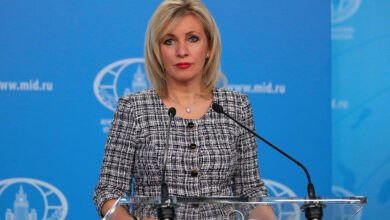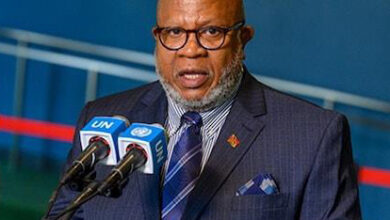Indian Patrol Boats for Vietnam, and Tough Talking to China
New Delhi. In a clear signal that India intends to step up its strategic presence in Vietnam and, by extension, in the troubled Southeast Asian geopolitical scenario, Indian company Larsen & Toubro signed a contract to supply Offshore High-speed Patrol Boats to the Vietnamese Border Guards. India also decided to provide a new line of credit of $500 million to Hanoi to promote bilateral defence cooperation.

New Delhi and Hanoi decided to scale up and strengthen their bilateral engagement to cooperate in responding to emerging regional challenges by upgrading the bilateral “Strategic Partnership to a Comprehensive Strategic Partnership”, Prime Minister Narendra Modi said, after his talks with his Vietnamese counterpart Prime Minister Nguyen Xuan Phuc.
Taking the ‘Joint Vision Statement on India-Vietnam Defence Relations’ of May 2015 forward, Mr Modi reaffirmed India’s “significant interest in promoting defence industry cooperation between the two sides and committed to provide a new Line of Credit for Vietnam in this area,” a joint statement issued after the delegation level talks said Saturday, September 3.
Mr Modi also announced a grant of $5 million for the construction of an Army Software Park at the Telecommunications University in Nha Trang.
Significantly, ensuring that pressure was maintained on Beijing, both Hanoi and New Delhi “reiterated their desire and determination to work together to maintain peace, stability, growth and prosperity in Asia and beyond.”
While not specifically naming China, the joint statement left no scope for doubt, saying in a hard hitting paragraph, “both sides reiterated their support for peace, stability, security, safety and freedom of navigation and over flight, and unimpeded commerce, based on the principles of international law, as reflected notably in the UNCLOS. Both sides also called on all states to resolve disputes through peaceful means without threat or use of force and exercise self-restraint in the conduct of activities… respect the diplomatic and legal processes, fully observe the Declaration on the conduct of parties in the South China Sea (DOC). Vietnam and India, as State Parties to the UNCLOS, urged all parties to show utmost respect for the UNCLOS, which establishes the international legal order of the seas and oceans,” the statement said.
The statement was issued shortly before Mr Modi left for Hangzhou in China to attend the G-20 summit.
A dozen agreements and MoUs were signed during Mr Modi’s day long visit.
In Hangzhou September 4, the Indian Prime Minister met with Chinese President Xi Jinping, their second meeting in three months as bilateral rhetoric has harshened. They had met in June for the SCO summit in Tashkent.
“India, China must respect each other’s aspirations, concerns and strategic interests,” Mr Modi said at the 30-minute meeting. He also raised the issue of China’s economic corridor through Pakistan, the External Affairs Ministry spokesman said.
“The response to terrorism must not be driven by any political consideration,” PM Modi also said, in a reference directed at China’s opposition to designating Masood Azhar, head of the Jaish-e-Mohammad group, as a terrorist in the United Nations.
President Xi said India and China needed to constructively handle their differences. “China is willing to work with India to maintain their hard-won sound relations and further advance their cooperation”, state-run Chinese Xinhua news agency quoted him as saying during their meeting.
Their bilateral talks were followed by a meeting of the BRICS (Brazil, Russia, India, China and South Africa) leaders, which Mr Modi chaired.
Ahead of the G-20 summit Monday, September 5, PM Modi also held bilateral meetings with Australian Prime Minister Malcolm Turnbull and Saudi Arabia’s Deputy Crown Prince Mohammad bin Salman.
Earlier, Mr Modi reached the Vietnamese capital late September 2 to bolster the crucial strategic partnership with that country which India considers to be a “central pillar of its ‘Act East’ policy.
The visit, the first bilateral visit by an Indian PM to Vietnam in 15 years, was intended to deepen ties in key areas of defence, security and trade, and oil exploration. The Prime Minister held talks with his Vietnamese counterpart and also met President Tran Dai Quang September 2, in a day packed with official engagements.
That the PM chose to stop over for a day in Hanoi clearly sends a message to Beijing, as Vietnam is a rival claimant to portions of the South China Sea.
Greeting the people of Vietnam on their National Day on September 1, Mr Modi said on his official Facebook page, “Vietnam is a friendly nation with whom we cherish our relationship.”
“Vietnam is India’s important strategic partner and the visit is aimed at further strengthening bilateral ties, including defence, security and trade,” said Preeti Saran, Secretary (East) in the MEA.
“Defence and security cooperation with Vietnam is very robust, which includes counterterrorism, trans-national crimes. Our focus is on capacity building, training, high-level exchanges and more recently defence procurement,” Saran said at a media briefing prior to the PM’s departure for Vietnam and China.
A highlight of the PM’s visit was the handing over of four Indian patrol vessels to Vietnam. India had provided a $100 million credit line to Vietnam, to purchase defence equipment from India.
Vietnam is also keen to buy BrahMos short range cruise missiles.
Asked whether India would be selling the Indo-Russian Brahmos missiles to Vietnam, Saran said both sides were engaged in “robust” conversation on stepping up cooperation in various areas including defence. India is providing training support for Vietnam’s Kilo-class submarines, and has also offered to train Vietnamese pilots to fly Sukhoi aircraft.
“Vietnam is a central pillar of India’s Act East Policy and our priorities for cooperation range in a whole host of areas, including defence and security, trade and investment, maritime cooperation, energy resources, in integrating our self to the ASEAN community and for leveraging our interactions in the regional and international forums,” she said.





